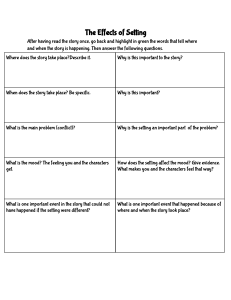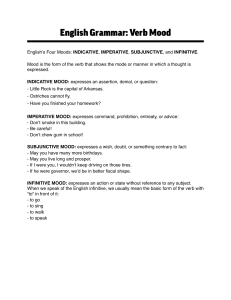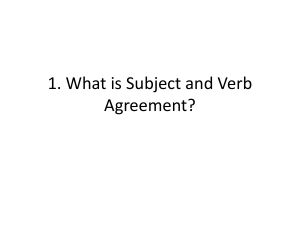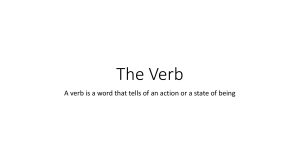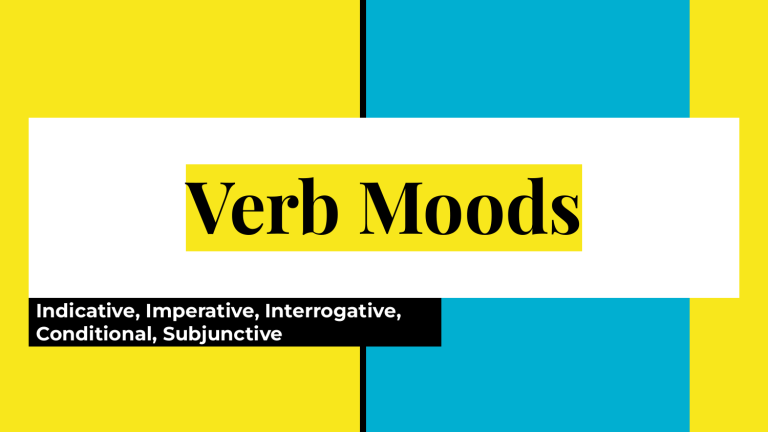
Verb Moods Indicative, Imperative, Interrogative, Conditional, Subjunctive What is verb mood? ● Mood is the form of the verb that shows the mode or manner in which a thought is expressed. ● It is meant to show the attitude of the writer or speaker. ● Mood differs from verb tense in this way: ○ Verb tense demonstrates time ■ Ex: I ate all of my dinner last night. ○ Verb mood indicates a state of being or reality ■ Ex. The dinner sits on the table. Indicative Verb Mood ● Expresses an assertion or denial, it indicates a simple statement of fact, which can be positive or negative. ○ Ex. I didn’t eat dinner last night. ○ Ex. Ostriches cannot fly. Imperative Verb Mood ● Expresses command, prohibition, or advice ○ Ex. Be careful! ○ Ex. Don’t smoke in the building. Interrogative Verb Mood ● A state of questioning, interrogating. Frequently appears with a request for a course of action or requests of information. ○ Ex. How many games did we win last season? ○ Ex. Will you leave me alone now? Conditional Verb Mood ● Expresses an action or idea that is dependent upon a condition. ○ Ex. If Darian had cleaned his room, he could have played outside. ○ Ex. If you would eat fruits and vegetables, you would be healthier. Subjunctive Verb Mood ● Expresses a wish, a suggestion, or a doubt. ● Subjunctive mood makes use of helping verbs, such as: “should,” “may,” and “were.” ○ Ex. If I were you, I would reconsider that decision. ○ Ex. I wish I were tall enough to ride that roller coaster. Example of each mood: Things to remember: ● If you change a verb’s mood, the tone of the sentence containing it will be changed as well. ● The mood depends on the purpose of the sentence ● Verb mood is the attitude the verb conveys in a sentence.
